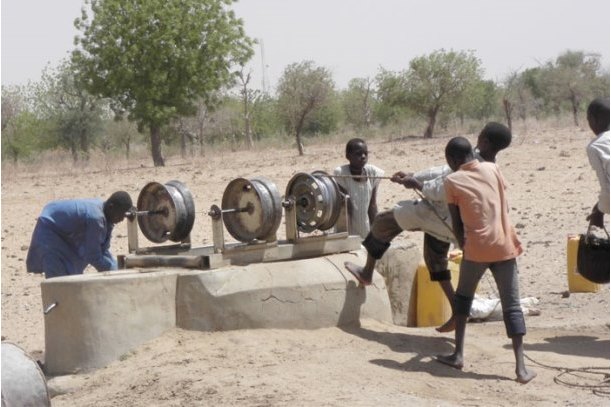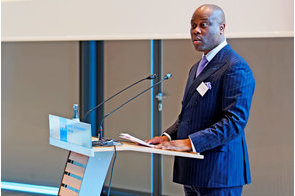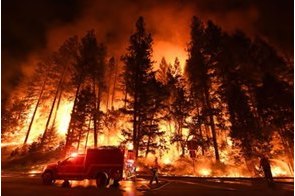Nigeria commits to global efforts for land restoration

Summary
Desertification in its Sahel region now threatens the livelihoods of some 40 million people in rural Nigeria.
Nigeria, Africa’s largest economy, has pledged to restore four million hectares of degraded land by 2030 as part of the African Forest Landscape Restoration Initiative (AFR100) and the Bonn Challenge, according to statement made available to Financial Nigeria today by Washington D.C.-based World Resources Institute. This signals continuing progress across Africa in the drive to bring back productivity to its land.
26 nations across the continent have now committed to restore more than 84 million hectares of degraded in a global effort to restore 150 million hectares by 2020 and 350 million hectares of land by 2030 – spurring climate resilience, job growth and more.
Restoring land is critical to Africa in the face of climate change, as the latest research finds that restoration holds the greatest potential for storing carbon of any land-based climate solution. The investment world is also taking restoration seriously, with almost $1.5 billion in financial commitments for AFR100, and $2.1 billion jrecently earmarked for Initiative 20×20, a similar country-led effort to restore land across Latin America and the Caribbean.
Forest Landscape Restoration is a major priority for Nigeria. The country boasts Africa’s largest economy, though is facing widespread deforestation driven by rapid urban development and population growth.
Bananda Aliyu, Director, Drought and Desertification Amelioration Department at the Federal Ministry of Environment in Nigeria, said “Nigeria is happy to be associated with the AFR100 initiative and Bonn Challenge. We are committed to restoring degraded forests to improve citizens’ livelihoods through food security, poverty alleviation, a sustainable environment and the achievement of the Sustainable Development Goals.”
Nearly a third of Nigerians rely on the agricultural industry for their income, and over three-quarters of the country’s land is used for agriculture. Desertification in its Sahel region now threatens the livelihoods of some 40 million people in rural Nigeria.
To combat this, the Nigerian government has spent 20 years implementing sustainable land use and forestry policies. Earlier this year, the country formally committed to achieving land degradation neutrality by 2030, to achieve healthy and productive land. Nigeria’s 4-million-hectare commitment will build on these efforts, and contribute to the United Nations’ Sustainable Development Goal to support life on land.
“We are honoured to have Nigeria as part of the AFR100 initiative and applaud the Government of Nigeria for this exciting commitment. Indeed, political will for restoration has never been stronger,” said Mamadou Diakhite, Sustainable Land and Water Management (SLWM) Team Leader at the NEPAD Agency, home to the AFR100 Secretariat. “Restoration is widely understood as a key strategy to meet climate change, desertification, biodiversity and sustainable development goals in Africa, and to secure vital food, water, and energy resources.”
Sean DeWitt, Director of the Global Restoration Initiative at World Resources Institute (WRI), added: “We are thrilled Nigeria will join the many other African nations collectively building momentum in restoration, through AFR100. The country has already taken bold steps to halt land degradation and desertification, demonstrating its leadership through the Land Degradation Neutrality process and the Great Green Wall initiative. I look forward to the significant role which Nigeria will play in the partnership.”
Forests in Africa still cover around 700 million hectares (seven million square kilometres) of land. According to the Global Land Outlook of the UNCCD, over a third of this is showing signs of increasing productivity, signalling that forest protection and tree planting projects have made some progress in the last 10 to 15 years.
Related
-
Access Bank promotes sustainability awareness and impact
The ongoing pandemic presents a learning opportunity to improve sustainability in all its dimensions.
-
Avoiding a climate lockdown
Global warming will cause drinking water to degrade and enable pollution-linked respiratory diseases to thrive.
-
India’s sustainable eating habits offer hope for climate change mitigation
Sustainable eating comprises practices such as minimising food waste, prioritising plant-based diets, and consuming ...










